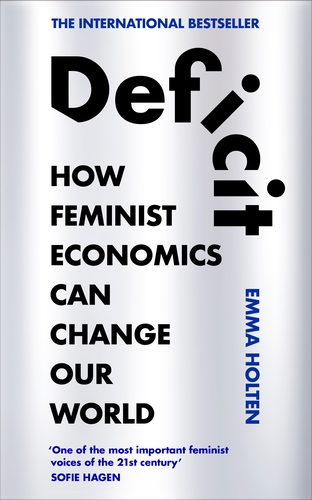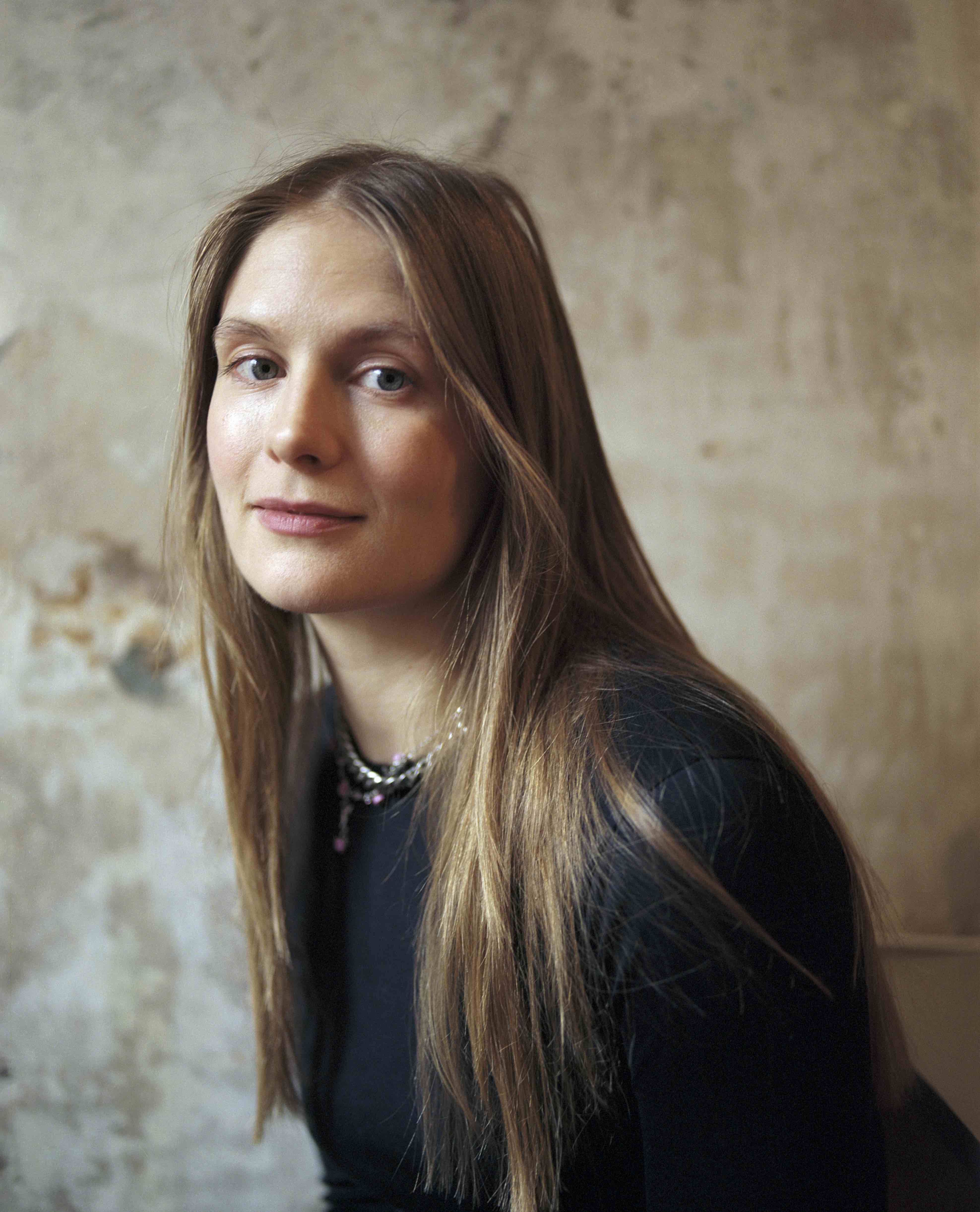Deficit: How Feminist Economics Can Change Our World (Underskud)

Translated into English by Sherilyn Hellberg
In 2020, the prominent Danish feminist Emma Holten read an article stating that women were a net ‘deficit’ to society. Women took more than they gave, ‘draining’ the public purse by giving birth and taking parental leave. They contributed less than their fair share in taxes, because they often worked part-time to look after other people at home, or held low-paid jobs in the public sector. Denmark would be richer if women’s lives looked more like men’s, the economic experts concluded. A similar story is told around the globe.
How did we get here? In Deficit, Emma Holten traces how economic thinkers – from the Enlightenment onwards – created a value framework that overlooked and neglected ‘women’s work’ and acts of care. She reveals how the economic models that drive political decisions today are just as flawed, giving us unparalleled monetary wealth, but causing deep social harms that are hurting us all.
If we cannot properly value the things that matter, how can we build a better future?
"This book brilliantly rewrites the history of economic thought to place 'her story' at its heart - while combining sharp analysis with piercing wit and deep care. It's a must read"
- Kate Raworth, author of DOUGHNUT ECONOMICS
"Emma is one of the most important feminist voices of the 21st century. Emma Holten is going to change the world and you better get on board now, by reading this book. This book will make everything make sense. The book about capitalism we didn't know we needed"
- Sofie Hagen
"At once poignant and accessible, Deficit deftly exposes how our existing economic institutions fail to value care in our societies and are incapable of understanding why relationships between people matter. A truly impressive book"
- Rosie Collington, author of THE BIG CON
"A triumph . . . Like all the great classics of economics, Holten’s DEFICIT is at heart about how we care for ourselves and other people. DEFICIT punches a great hole through history and our thinking about the care crisis that defines all of our lives. Holten is immensely readable, crystal clear, informative and best of all laugh-out-loud funny. So entertained and engrossed was I by Holten’s distinctive voice, it was only after I put down the book that I realised the impact of this subtle, informative history lesson in four hundred years of western economics, and how feminist thinking has the capacity to change it"
- Rachel Holmes, author of ELEANOR MARX and SYLVIA PANKHURST
"Emma Holten’s brilliant book about the economy’s blind eye is a real page turner in which she challenges established thinking. In Deficit she shows how the value of care disappeared from economics and politics. It began with a witch hunt"
- Politiken
"It is hard not to be gripped by Emma Holten's book. Deficit is carried by an infectious primal power, vulnerability and knowledge"
- Weekendavisen
"The importance of Emma Holten's contribution is beyond doubt. We need to do things differently."
- Jylland Posten
"A fresh kick from the feminist front [...] Danish author Emma Holten is a blazing firework. [...] With bravura, DEFICIT writes itself into an international context that will change traditional economic systems such as GDP."
- Vårt Land
"Holten summarizes, presents and brings out important insights from this body of work, and she does so in an accessible, narrative-driven and funny - yes, witty - way. Holten has a talent for finding the essential through the fog of common conventions, as she demonstrated in her incisive analysis when she took a stand against digital abuse in 2014. She has an equally great talent for reaching out to a wide range of readers [...] this book is an instructive, easy-to-read and incisive contribution to the debate on care work."
- Klassekampen (Norway)
"DEFICIT gives you the arguments you need when you meet the Patagonia guy at Kulturhuset who loves to talk about why we should let the “invisible hand” crush the welfare state. The book is a liberating kick against today's one-sided belief in individualism and a value system that systematically ignores what does not fit into the economists' mechanical system. [...] This makes the book a good place to start for those who want to learn about economics and the history of ideas from a feminist perspective. [...] In a time with an ageing population, low fertility rates and a certain American billionaire lurking in the wings, Emma Holten's book is almost invaluable."
– Universitas (Norway)
"... the book raises key issues, and regardless of your ideological standpoint, it gives you a lot to think about. Here the book succeeds in its fundamental project. Holten brings something really unpleasant about modern society into focus. There's something in the economists' calculations that doesn't add up. And the problem is perhaps, as Holten suggests, that life was never a calculation in the first place."
- NRK (Norway)
"What Holten accomplishes is to gather all this knowledge around the core of her argumentation, and although much of it is already familiar to me, and although her thesis is far from new, it remains persuasive and increasingly engaging."
– Svenska Dagbladet (Sweden)
"It is a pity I couldn’t read this book 40 years ago. Then I would have had better ammunition."
– Dagens Nyheter (Sweden)
"A feminist political manifesto that argues for the immeasurable value of care."
– Arbetet (Sweden)
"An engaging book about the crisis around the concept of care."
– Göteborgs-Posten (Sweden)
"This book is a passionate speech against the form of economy that has become God in our societies."
– Sydsvenskan (Sweden)

